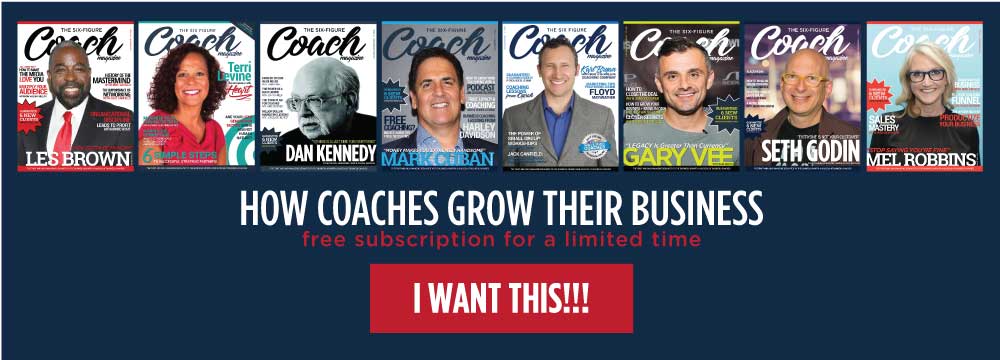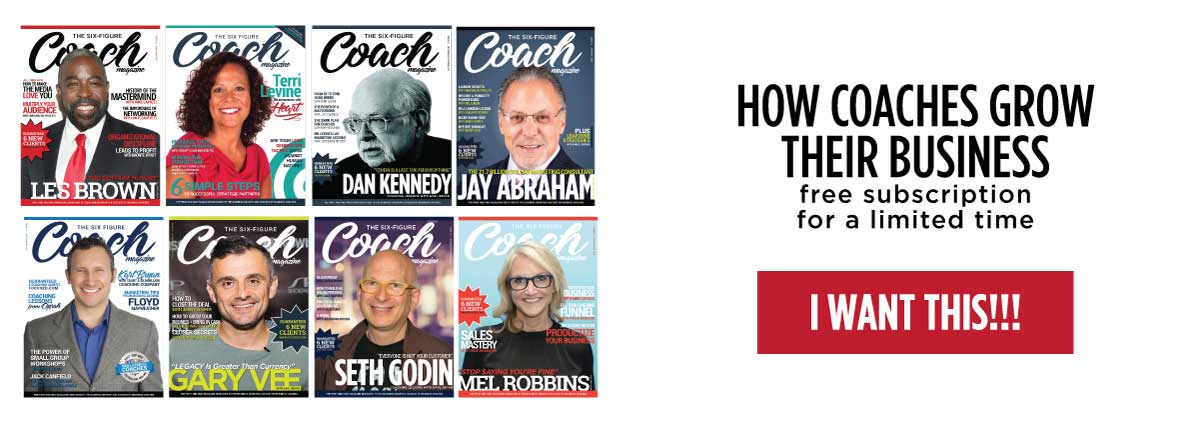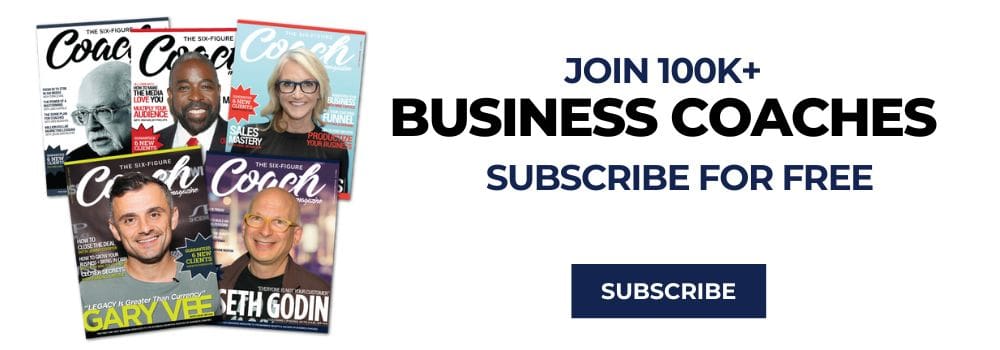4 Ways Any Coach Can Improve By Alina Trigubenko
In an industry where we help others learn and grow, it’s important to do so ourselves.
This is both for intrinsic reasons coaches deserve happiness and success as much as clients and also because the world and marketplace is changing around us.
At awarenow.io, the all-in-one business management platform for coaches, we did a major research study of coaches and clients across a variety of industries and types of coaching.
Interestingly, we found the same four coaching “mistakes” or improvement opportunities being repeated over and over.
The first two are more common among newer coaches while the latter two are more prevalent with experienced coaches.
Let’s dive in:
Coaching Opportunity #1: Expectation-Setting
One mistake newer coaches sometimes make is in not setting clear expectations with the client at the beginning of a relationship.
This can easily lead to frustration, disappointment, and even a negative client experience down the road.
It’s understandable how this can happen. Newer coaches, especially, can be too eager to sell to paying clients and/or too eager to get started and dive in.
However, doing so lets a client believe that the process will go exactly as they imagine it, which may not be reflected in reality.
Thus, setting expectations should be a two-way conversation to ensure alignment and should be a structured process (we recommend using client intake forms).
A separate but related issue can be found in the sales funnel.
When providing free content, and especially when transitioning to the “sales” part of the sales funnel, it’s important to be clear about where the line between free and paid services lies.
Otherwise, coaches risk being (or feeling) taken advantage of, and clients could be abruptly surprised when the transition happens.
Coaching Opportunity #2: Focus. Then Focus More.
The second of the newer-coach opportunities – but one that also affects even coaches who have been in the industry for a few years – is lack of focus. If a coach can do A, B, and C, why not offer all of those into the marketplace? Isn’t a larger potential market of potential clients better?
Yes…to the extent a coach can market him or herself effectively across multiple dimensions. However, this is extremely difficult.
It’s very straightforward, for example, to market oneself as a back-to-work coach for C-Suite executives returning to the workforce after maternity or paternity leave.
It’s relatively clear where one would look for clients, and a coach focusing on that area would be releasing articles, videos, and training programs specifically focused on the problems faced by his or her target market.
Eventually, the coach would get known for his or her expertise in the area, and get referrals, be a trusted provider for organizations who see value in the service, and so on.
Now let’s say that the same coach has skills helping entrepreneurs with work/life balance.
A coach who is promoting him or herself in this field would have another set of videos, resources, and products. What would their website look like? “I help with back-to-work for corporate America and I help with work-life balance for entrepreneurs” is a mealy message.
It’s possible to get away with it, with a well-structured website (or multiple websites) but the coach’s attention will be split two ways and have less clear of a brand identity.
Now start adding a third, fourth and fifth specialty. At this point, the coach’s messaging is very diffuse, and they’re only spending 20% of their day on each of their specialties.
It’s not instantly clear to potential clients that the coach can solve their problem and their marketing budget (in time, money, and brand) is split in five for each segment.
Potential customers may be confused and defect to the coach is spending 100% of their time in their specific area, even though nothing has changed about the original provider’s expertise.
Coaching Opportunity #3: Let the Process Play Out
An issue more common for experienced coaches is expressing the solution to the client problem too quickly.
As a coach has seen similar dynamics from clients over and over, he or she will naturally recognize patterns and be able to skip ahead to a set of “answers”.
However, this can be counterproductive.
The above requires some explanation. Of course coaches should try to help clients get to solutions as quickly as possible.
Of course, coaches should not artificially draw out the process.
However, going too quickly risks a client feeling that they are getting a cookie-cutter solution (even if this is not the case), and also doesn’t allow the client to come to the right conclusions him or herself in a way that is more likely to make them stick.
In other words, coaching is not consulting.
Coaching Opportunity #4: Get a Coach
Coaches at all levels should consider having a coach themselves, like many or possibly most therapists do with other therapists. This is for a number of reasons:
- Practice what you preach. If coaching is so valuable, a coach should be taking advantage of the benefits that it can bring.
- Being coached provides a unique opportunity to work with someone who almost by definition has experience, understanding, and insight into the coach’s world since they are living it themselves.
- Opportunity to see the world as a coaching client does providing implicit lessons for the coach’s own business
- Opportunity to learn from one’s coach beyond just the curriculum, also observing ways that he or she goes about the process and integrating those lessons into one’s own coaching.

About Alina Trigubenko
Awarenow was founded by Alina Trigubenko, a coach who was frustrated with the limitations of digital tools to support independent coaches and scaling coaching practices.





